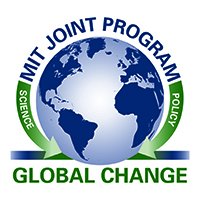
VIDEO of Climategate discussion
Event and participant details
At Dec. 10 forum, MIT faculty experts discussed what 'Climategate' really means for climate science and the ongoing policy negotiations in the Congress and at Copenhagen.
The leaked e-mails from the climate scientists at the University of East Anglia (UEA) have caused a huge public relations headache. The e-mails, in which the scientists seemed to question or even exaggerate their research, have provided new fodder for climate-change skeptics, who now feel they have "proof" that global warming is a hoax. The e-mails may be proof of nothing other than frustrated or impatient scientists, but the scientific community nonetheless has to deal with the fallout — the public’s increasing doubt about the validity of climate science, and maybe even doubt about scientific research in general.
"The Great Climategate Debate," held on Dec. 10 (see event and participant details) featured a panel of MIT faculty addressing the issues — both scientific and political — surrounding the controversy in the hopes that it wouldn't become the main focus of this month's United Nations Climate Change Conference in Copenhagen, Denmark. The debate involved the many issues raised by the scandal: the validity of climate science, the motives of the hackers who leaked the e-mails, the need for responsible scientific reporting and ethical standards, and the way the public interprets and understands information from the scientific community.
Kerry Emanuel, the Breene M. Kerr Professor of Meteorology, fears that Climategate was a "premeditated distraction from the main issues" of climate science. Emanuel said he's concerned with the identity and motives of the hackers, citing the very rich "machine" of global warming deniers as a possible culprit. As for the e-mails, he thinks they show nothing more than "humans — a few with failings. Mostly, it shows scientists hard at work."
Richard Lindzen, the A. P. Sloan Professor of Meteorology, believes the e-mails were leaked by a whistleblower within the Climate Research Unit who, like Lindzen, is disillusioned by what he sees as the scientific community’s one-sided argument over climate change. "Undeniably," he said, "we are dealing with issues illegal and unethical." The debate, he said, is whose illegal and unethical behavior is the larger issue: the scientists or the hackers?
Although Ron Prinn, the TEPCO Professor of Atmospheric Science and director of the Center for Global Change Science, thinks the e-mails are unethical and unprofessional, he believes this means little for the validity of the UEA scientists' studies. This controversy, he said, should not cause us to reevaluate our concern over global warming. Prinn notes that the larger body of evidence remains robust: The UEA scientists represent just a few of the many scientists from institutions around the world who are studying climate-change issues.

